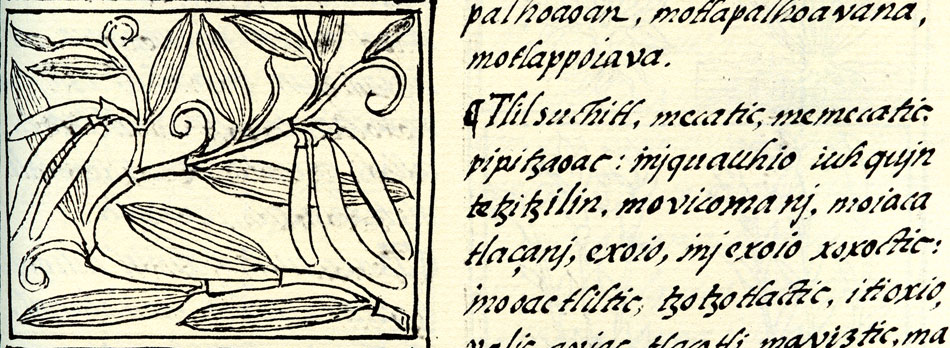Did you ever hear about Edmond Albius? Yes, he had a name
like a Harry Potter wizard, but he was more than just a name, and our lives would not be the same without him. Albius was born into slavery, but in
1841 he invented something that changed our world forever.
Before Edmond
Albius changed things, Mexico was the only place in the whole world that could grow vanilla. There's a sting-less bee in Mexico that is the only bug in
the world that naturally pollinates the Vanilla Orchid. Without
pollination these orchids won't produce vanilla pods, and the pods
are the tasty part. Sadly leaving Mexico means leaving the bees. No bees means no pollination and no pollination means no vanilla. A Belgian botanist did invent a way to
pollinate the orchid artificially, but his method was unusable and laborious. Then in 1841 Edmond Albius took a stick and invented a simple
technique to pollinate vanilla orchids. After over 150 years we
still use that technique. Almost all vanilla on earth is pollinated
this way. He is the reason I get to enjoy vanilla. Oh yeah, Albius was only twelve years old when he figured it out.
This story stirs my desire to be remembered. Vanilla is grown globally because of Edmond Albius. I may never do anything so globally important as that boy did. This bothers me.
It's a basic human impulse: We
want legacies. We want to leave something indelible that will be
around after long after we're dead and gone. People build companies,
challenge governments, break records and even wage wars with
this end in mind. We do so in vain. This world is temporary. None of our legacies outlast us. C.S. Lewis talks about this in The Weight of Glory:

“It is a serious thing to live in a society of possible gods and goddesses, to remember that the dullest and most uninteresting person you talk to may one day be a creature which, if you saw it now, you would be strongly tempted to worship, or else a horror and a corruption such as you now meet, if at all, only in a nightmare. All day long we are, in some degree, helping each other to one or other of these destinations. It is in the light of these overwhelming possibilities, it is with the awe and the circumspection proper to them, that we should conduct all our dealings with one another, all friendships, all loves, all play, all politics. There are no 'ordinary' people. You have never talked to a mere mortal. Nations, cultures, arts, civilizations -- these are mortal, and their life is to ours as the life of a gnat. But it is immortals whom we joke with, work with, marry, snub and exploit, immortal horrors or everlasting splendours. This does not mean that we are to be perpetually solemn. We must play. But our merriment must be of that kind (and it is, in fact, the merriest kind) which exists between people who have, from the outset, taken each other seriously -- no flippancy, no superiority, no presumption. And our charity must be a real and costly love, with deep feeling for the sins in spite of which we love the sinner -- no mere tolerance or indulgence which parodies love as flippancy parodies merriment."
I love this quote.
It makes me question my longing to be remembered. I
hope it makes you do the same because we are more permanent than any of our
accomplishments. Our neighbors, enemies and friends are more lasting
and valuable than anything we can build.
Challenge:
Do not store up for yourselves treasures on earth, where moths and vermin destroy, and where thieves break in and steal. But store up for yourselves treasures in heaven, where moths and vermin do not destroy, and where thieves do not break in and steal. For where your treasure is, there your heart will be also. Matthew 6:19-21
What do you
treasure? Is it of earth or heaven? Lay down your worthless treasures. Jesus is happy to forgive you if you have clung to the wrong things. He is also happy to replace those old "treasures" with beautiful new ones, because he treasures you.


